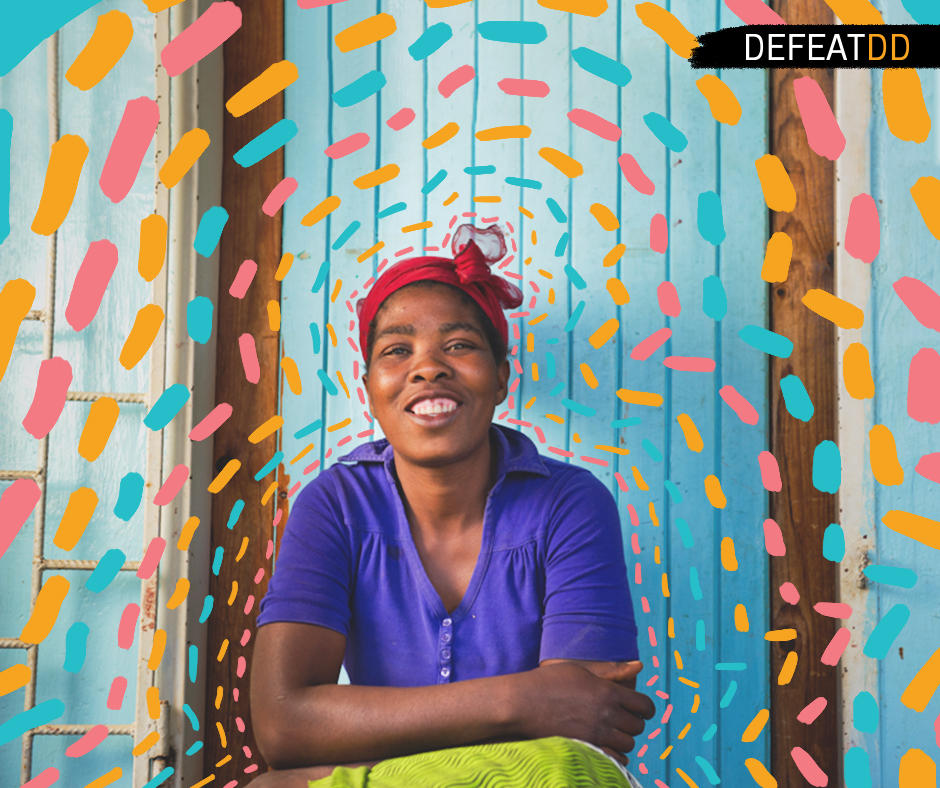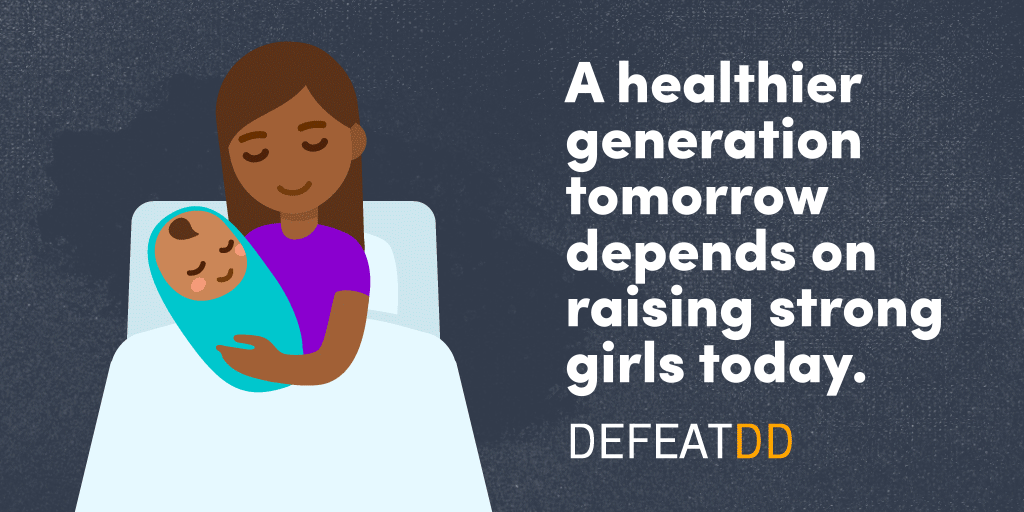
Water and sanitation creates a ripple effect for girls, women, and society

At DefeatDD, we advocate for simple tools to stop the cycle of diarrhea and malnutrition. Prioritizing access to these tools for women and girls does more than halt a bad cycle; it creates a positive cycle in their lives and, by extension, their communities.
It begins early. The first 1000 days of life sets infants on the right course for healthy physical and cognitive development. But when repeated enteric infections and malnutrition compromise growth during this window, the effects can last a lifetime.
No child should face the burden of stunted potential, but the stakes for girls are costlier to communities: malnourished girls who become malnourished mothers give birth to underweight boys and girls. These children are more vulnerable to infections, the burden of enteric infections persists, and the cycle of poor health, malnutrition, and poverty continues. The cost of not investing in women and girls is enormous.

Access to water and sanitation during key stages in a woman’s life cycle creates powerful ripple effects. She has time for an education, rather than spending hours fetching water; she is safer from sexual assault, so often a threat when she seeks secluded places to relieve herself; and she has better reproductive and maternal health outcomes, like menstrual hygiene management and safer labor and delivery.
And there is no one better than a mother to advocate for the health of her children at the critical 1000 day window that sets the cycle’s course.
Today, women are making their voices heard, from Kenya to India. In a global survey by the White Ribbon Alliance on women’s reproductive and maternal healthcare priorities, water, sanitation, and hygiene (WASH) topped the list, second only to respectful, dignified care.
Will we honor their requests and help stop the cycle of poor health and poverty? Will we tap into the natural ripple effects of the positive cycle these measures create in their lives and families?
It begins with universal access to WASH.


